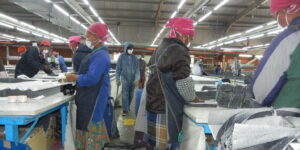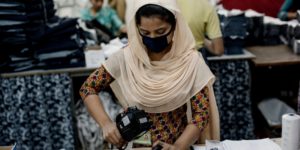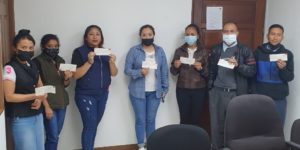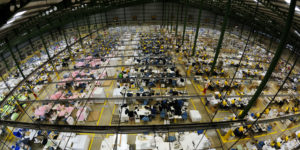Commentary Archive
Twenty-eight years ago last month, consumers opened their newspapers to learn that sweatshops had returned to the US apparel industry, on domestic soil, under conditions unheard of in nearly a century. In August 1995, more than 70 Thai migrant workers were found to be sewing garments sold by major US retailers, under slave labor conditions,…
Read MoreAfter nearly a year of investigation and engagement by the WRC, Centri Group, a garment factory in Haiti that supplies the Canadian apparel company, Gildan Activewear, has committed to remedy violations of its workers’ fundamental right to freedom of association. As previously reported, a WRC investigation had found that, in 2022, Centri Group violated its…
Read MoreThe WRC stands with the international labor rights community in mourning and condemning the devastating murder of longstanding union leader, Shahidul Islam of the Bangladesh Garment and Industrial Workers Federation (BGIWF). Our thoughts are with his wife and sons, and the union movement in Bangladesh that he tirelessly dedicated 25 years of his life to…
Read Moreআন্তর্জাতিক শ্রমিক অধিকার সম্প্রদায়ের সাথে একাত্ম হয়ে ‘শ্রমিক অধিকার সংঘ’ (Worker Rights Consortium, WRC) বাংলাদেশ গার্মেন্টস ইন্ডাস্ট্রিস ওয়ার্কার্স ফেডারেশনের (BGIWF) নেতা, শ্রমিক আন্দোলনের দীর্ঘদিনের বন্ধু শহীদুল ইসলামের নৃশংস হত্যায় শোক ও নিন্দা জ্ঞাপন করছে। তাঁর স্ত্রী ও ছেলেমেয়ে এবং বাংলাদেশের ট্রেড ইউনিয়ন আন্দোলনের বন্ধুদের মতো আমরাও এই মর্মান্তিক ঘটনায় শোকাহত ও সমব্যাথী; তাঁদের প্রতিও আমরা…
Read MoreA new report details the impact of the Lesotho Anti-GBVH Program over the past two years. This Program was created by a set of landmark agreements between apparel companies, a major manufacturer, unions, and women’s groups to address gender-based violence and harassment (GBVH) in Lesotho garment factories. The WRC has played a central role throughout…
Read MoreThe Rana Plaza factory collapse killed 1,138 workers, more than any other manufacturing disaster in human history. These deaths, and the injuries to 2,500 others on April 24, 2013, were the culmination of more than a decade of mass fatality incidents in Bangladesh’s garment industry—most of them in factories producing for leading fashion brands and…
Read MoreJNB Global, a garment factory in Guatemala that supplies Target Stores, has provided legally owed severance and back pay to workers whom the factory unlawfully fired in February 2021, and it has restored severance and seniority rights for the factory’s entire workforce of 400 employees, following a WRC investigation and subsequent engagement with Target for…
Read MoreDespués de una investigación realizada por el Consorcio de Derechos del Trabajador (WRC, por sus siglas en inglés) y del subsiguiente compromiso con Target para implementar acciones correctivas, JNB Global, una fábrica de ropa en Guatemala que abastece a las tiendas de Target, pagó las indemnizaciones por despido y los salarios caídos que legalmente se…
Read MoreIn late August 2022, more than 800 workers at the apparel factory, GO Haiti (Garments of Haiti) picked up severance checks totaling $330,000, the equivalent of almost three months’ wages per worker, that were paid for by Hanesbrands, the US apparel company that had been the factory’s main buyer. Hanesbrands informed the WRC that it…
Read More







First Pakistan Building Inspections Indicate Deadly Fire Hazards Are Widespread
The complex work of formally registering the Pakistan Accord as an entity able to operate in Pakistan is complete. This was an important hurdle, now cleared, which will allow vital safety inspections to commence. The urgent need for the Accord program in Pakistan is underscored by the results of pilot safety assessments already conducted by the Accord in seven Pakistani garment and textile factories.
Read More